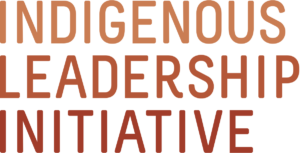ECCC Minister Talks with ILI Leaders about Guardians & Indigenous-led Conservation
Environment and Climate Change Canada Minister Steven Guilbeault interviewed ILI Director Valérie Courtois and ILI Deputy Director Dahti Tsetso on a Facebook live event on National Indigenous Peoples Day.
June 22, 2022
Indigenous Guardians are at the forefront of some of the most exciting and inspiring work in the country. They care for lands and waters that matter to the health of all of us. They help revitalize culture and language. And they help build partnerships with non-Indigenous Canadians.
In recognition of this leadership, Environment and Climate Change Canada Minister Steven Guilbeault interviewed ILI Director Valérie Courtois and ILI Deputy Director Dahti Tsetso on a recent Facebook Live event about the benefits of Indigenous-led conservation.
Courtois and Tsetso were honoured to share some of the vital work underway across the country.
“Guardians represent our leaders, our knowledge keepers, our youth. And for many of our communities, they represent hope,” said Tsetso. “We are facing climate change and concerning loss in biodiversity. The solutions Guardians and Indigenous knowledge systems offer are needed now more than ever.”
Partnerships Key to Health of the Land
Minister Guilbeault underscored the central role of Indigenous Nations in sustaining lands and waters. “Indigenous peoples are the original guardians of the land. Any conservation must start in partnership with Indigenous partners,” he said. This is how Canada will meet its commitments to sustain nature and biodiversity, he continued. “If we will reach our goal of 30 by 30, partnerships with Indigenous People are at the heart of our efforts.”
With dozens of proposed Indigenous Protected Areas and more than 80 Guardians programs operating across the country, it’s no surprise Canada is looking to partner with Indigenous Nations to achieve its climate and biodiversity targets.
The theme of partnership ran throughout the conversation.
Talking about the Minaskuat Kanakuataku Guardians of the Innu Nation in Labrador, Courtois explained: “Guardians monitor fisheries, they monitor what was the largest caribou herd in the world—the George River Herd—and they monitor the largest nickel mine in the world. They inform our leadership for better decision making and better partnerships, whether that is with industry, other governments, or the general public.”
Indigenous Knowledge Transforming Conservation
The minister asked Tsetso about her work with Dehcho First Nations helping establish the Edéhzhíe Dehcho Protected Area/National Wildlife Area in the Northwest Territories. “We are able to access deep Dene knowledge,” she said. “We are applying our understanding of how to take care of the land to the management of Edéhzhíe. And it’s done in partnership with Canada. It’s a great model and one this region is very proud of.”
Minister Guilbeault agreed, saying the creation of Edéhzhíe “for us is a transformative experience and a model we are moving toward.”
Members of the IMinaskuat Kanakuataku Guardians for the Innu Nation conduct water monitoring.
Guardians are an important part of the transformation. “Guardians represent a way for us to mobilize our knowledge, to flip the script on how conservation is normally explored,” said Tsetso. “We understand that the land is part of us, and we are part of the land.” Combining that deep knowledge with other ways of knowing helps identify solutions to challenges like climate change.
For the World
Both Tsetso and Courtois emphasized that all Canadians can play a role in advocating for Indigenous-led conservation—not only because it is equitable, but also because it is good for our shared futures.
Courtois quoted a Guardian from Łutsël K'é Dene First Nation Gloria Enzoe who said, “We are doing this work not just for our benefits, but for the benefit of the whole world.”



